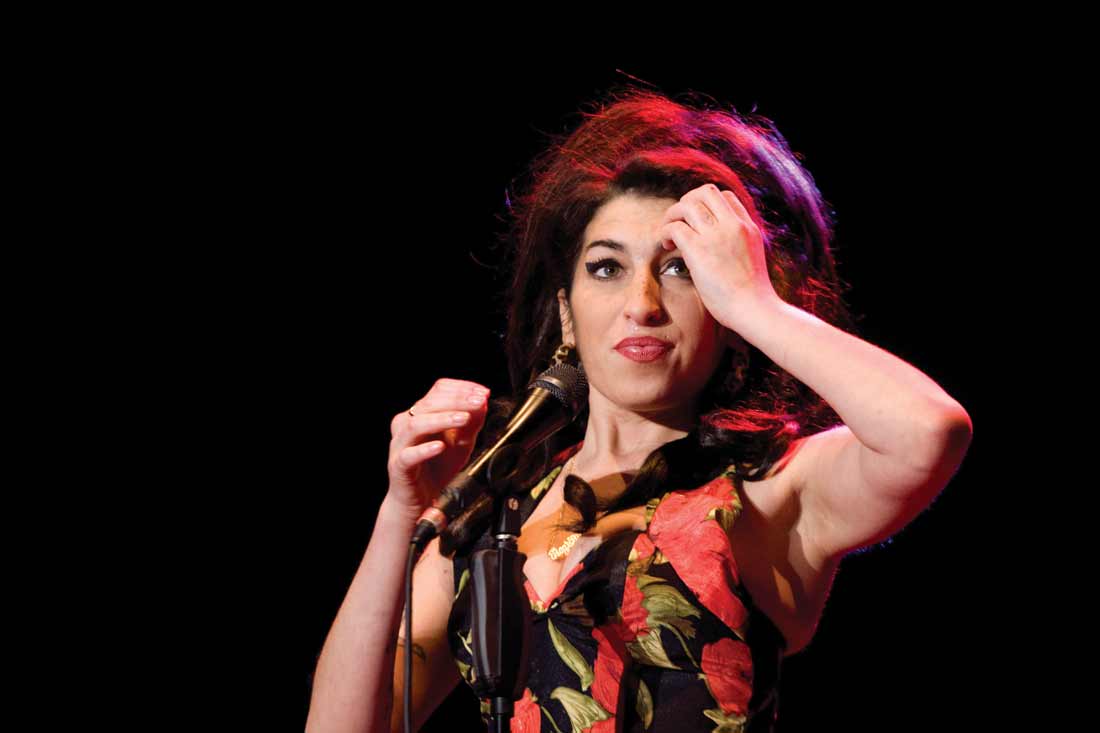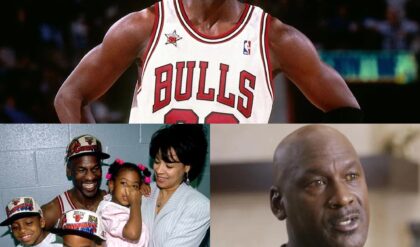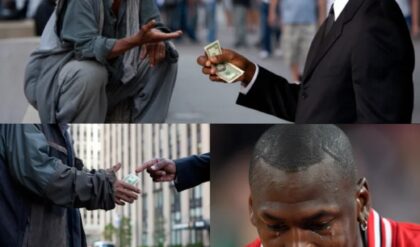For me, there are few forms of entertainment so much fun as a biopic – especially a bad one. I remember as a youngster seeing a television film about F Scott Fitzgerald. At one point, he was shown sitting with Ernest Hemingway at a pavement café in Paris when a third man approached them and one of them said: ‘Here’s Ezra Pound – written any good poems recently, Ezra?’ When a film producer bought the rights to my autobiography some years back, my main reason for agreeing to it was the hope that someone would say in the film at some point: ‘Here’s Julie Burchill – taken any good drugs recently, Julie?’
But even the appeal of a bad biopic becomes problematic when the subject is somebody who one was an extreme admirer of, as I was of Amy Winehouse. The new film, Back to Black, appears to be more cringey than entertaining. The feeling on social media and among critics is already largely negative. Somewhat shockingly, Marisa Abela, who plays Amy, was awarded the part before anyone knew whether she could sing. Abela was educated at the private Roedean School and is the daughter of an actress. Amy was the working-class daughter of a cabbie. Another reminder that proletarian pop stars have been edged out of our gentrified culture by the expensively educated.

As if this wasn’t dispiriting enough, the film highlights the tired old trope of ‘Victim Amy’, forever hunted by the monstrous regiments of The Media intent on making a fast buck from this poor innocent. (Biopic-makers never portray themselves as similarly parasitical.) After telling the BBC that it ‘wasn’t her place to cast judgement’, director Sam Taylor-Johnson then did exactly that by stating that ‘paparazzi and addiction’ were to blame for Amy’s youthful demise. The recurrent theme of the film is the sight of the press pack hunting down the poor young creature, to the point that none of them assists her when she goes A over T outside a pharmacy. Meanwhile, the actress who plays her seems somewhat confused about whether Amy was a victim or not. At a Harper’s Bazaar International Women’s Day event in March, Abela opined, somewhat loftily: ‘We don’t judge Amy in our film… how have we got to this place where she is a victim of her own story? Of course, she was a victim of addiction and the media.’
Tough-minded rotters like me frequently say this, but it does seem as if everyone has to be seen as a victim these days. Women, though we live in allegedly less sexist times, get a double dose of this pity-party pathos. I’m sure he meant well, but when Morrissey declaimed rhetorically upon the death of Sinead O’Connor last year – ‘Who cared enough to save Judy Garland, Whitney Houston, Amy Winehouse, Marilyn Monroe, Billie Holiday?’ – it was telling that he didn’t wonder why no one had ‘saved’ every dead male entertainment icon, from James Dean to Kurt Cobain. It’s because we see the early deaths of the likes of Jim Morrison and Jimi Hendrix as a natural part of their artistic arc – prices worth paying for the freedom of expression a life without limits gave them. But with dead female entertainers, there’s always the rather patronising backbeat that ‘All she really wanted was love’ – and that fame was the demon lover she found instead.
I’m sceptical of the ‘fame equals sorrow’ theory. Plenty of non-famous people make bad romance choices, take too many drugs and die young. Fame is fun. But there’s a conspiracy of the famous to make the non-famous feel that it’s nothing but trouble. That way they get to keep the plum showbiz jobs for their darling little nepo babies, who will hopefully never have to do a dreary ‘civilian’ job in their lovely little lives. Tellingly, Abela comes from a showbiz family.
Despite the ghastly lyrics of ‘Candle in the Wind’, very few people have fame thrust upon them. It’s actually really hard to achieve because there’s so much competition. Anyone who hates the idea of living life in the public eye should have a serious talk with themselves about whether this is the life for them. If one really doesn’t want the mass attention of strangers, there are masses of useful jobs one can do, which involve helping humanity rather than showing off to it.
When I hear people coming out with clichés about the savage pursuit of the paparazzi, I think of Brigitte Bardot. In her youth, after Marilyn Monroe died, she was the most pursued film star in the world. Yet in the vast, vast majority of shots she seems at least serene, at best positively cheerful. Kate Moss, often snapped by paps even when taking a sober stroll to the corner shop, has the same quality, and it has added to her appeal over the decades. There’s one photograph in particular of Bardot, taken in 1959, in which a vast mob of press photographers hustle to get closer to her as she is pressed up against a mirror. In both her face and her looking-glass image, she looks not merely comfortable with the situation, but actually full of glee. She seems to find the situation hilarious. She was the exact opposite of the stars of today, who scowl like they’ve got cystitis and have just stubbed their toe whenever a non-approved photographer pops into view, hoping for a bit of pap action.
It’s as true of female singers as film stars. Popular music is now full of nervous nellies who seem to believe that banging on about ‘mental health’ is a feasible alternative to making memorable music. Going on record as having ‘anxiety’ or ‘panic attacks’ has gone from being taboo to mandatory if you want to advertise the fact you’re a ‘good person’. Every other female performer these days seems determined to portray themselves as ‘vulnerable’, which is supposed to signal ‘authenticity’ but just seems wet.
Take the recent record-breaking BRIT Award-winner, Raye, who somewhat resembles Amy. She is a modern young woman of a generation that fetishises the idea of attaining perfect mental health, so much so that they seem humourless and self-dramatising. Her ‘Body Dysmorphia’ isn’t the best name for a song, and may well sum up much that is wrong with modern music. It’s about as poetic and subtle as the instructions on a pharmaceutical label. It was dismaying and predictable to see Raye announce earlier this month, just a few weeks after sweeping the board at the BRITS: ‘I feel lonely… I need to do some therapy, get some practices in place to let the negatives fall away and soak up all the positive things that life is offering me right now.’ Am I the only one who preferred the days when the young, successful and gorgeous were routinely on top of the world and didn’t care who knew it?
The rise of therapy culture, encouraging musicians to work through their issues rather than utilise them in their work, has been nothing but a disaster for popular music. I’m not saying that singers should surrender wholesale to their demons simply so they can provide me with an interesting soundtrack to my antics, but if they have those demons, it’s probably better to corral them into creativity rather than yammer about them in the media non-stop until no one actually wants to buy your desiccated ditties anymore. There must be a happy medium between suffering so hard for your art that you end up dead at 27 and calling your album Therapy, as Anne-Marie recently did, and thus expecting your audience to pay for the pleasure of being your shrink.
Amy certainly had her problems – real ones, unlike a lot of today’s pampered princesses and their endless ‘issues’. But, crucially, she channelled them into her brilliant music. Would she be allowed to say ‘No, no, no’ to rehab these days? I sincerely doubt it. She’d be condemned as a bad role model.
The music critic and confidante of opera singer Maria Callas, John Ardoin, was once asked if Callas’s art was worth suffering for. ‘Certain people are blessed – and cursed – with an extraordinary gift, in which the gift is almost greater than the human being’, he replied. Amy had this. But additionally the human being was certainly greater than the paper-thin tragic diva clichés being peddled about her in this new film.
Ultimately, Amy Winehouse was victor, not victim, because she did the thing in life that she loved most and she did it so well. She reached the peak of her potential at an age when most people are finally realising that they are going to spend their short time on Earth doing something that they are not particularly fond of. Her life was the opposite of wasted – it was completely fulfilled, albeit too soon. She didn’t want only to be loved – she wanted to be listened to, and she was, and always will be. She won.

